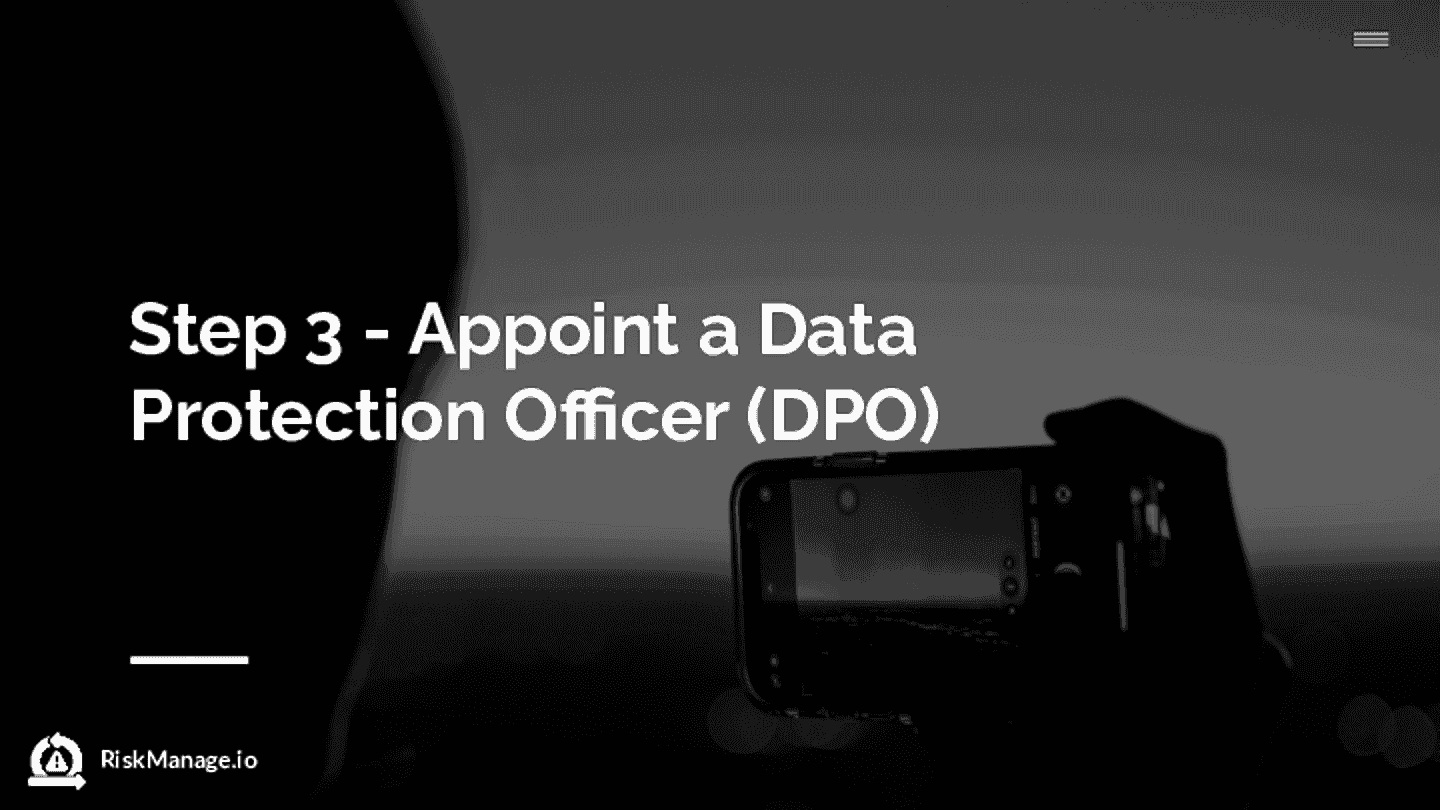The 9 Steps to DPA Heaven : Step 3 - Appoint a Data Protection Officer (DPO)
A roadmap to effectively safeguard personal data, ensure regulatory compliance, and build lasting trust with stakeholders.
Welcome to Step 3 of our Nine Steps to Data Protection Heaven article, where we will cover the appointment of the Data Protection Officer , and how they serve as a critical figure in overseeing and ensuring compliance within your organisation.
In Step 2 we covered the Data Protection Impact Assessment, identifying, the essential part of your data protection toolkit, especially when it comes to high-risk data processing scenarios. The DPIA provides a structured method to analyse, identify and minimise the data protection risks of a project or plan.
Links
- You can listen to this Step 3 as a podcast here, or
- the complete audio (parts1-9) here.
- The complete article is available here.
- If you have missed any part or would like to start from the beginning, you can find links to all sections at the bottom of this article.
A roadmap to effectively safeguard personal data, ensure regulatory compliance, and build lasting trust with stakeholders.
Here is a summary of the 9-Step process, that you can follow as we walk through each step.
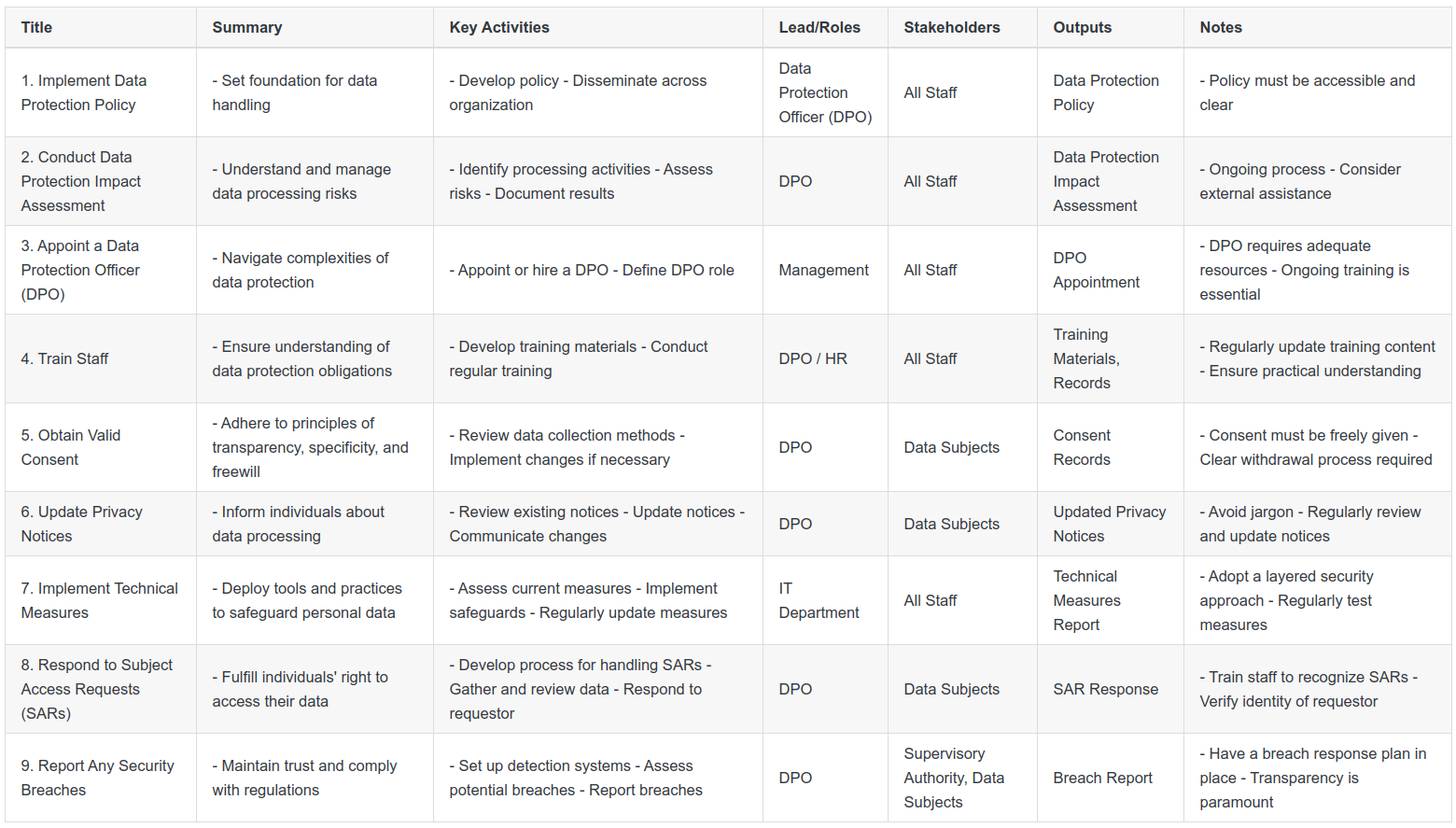
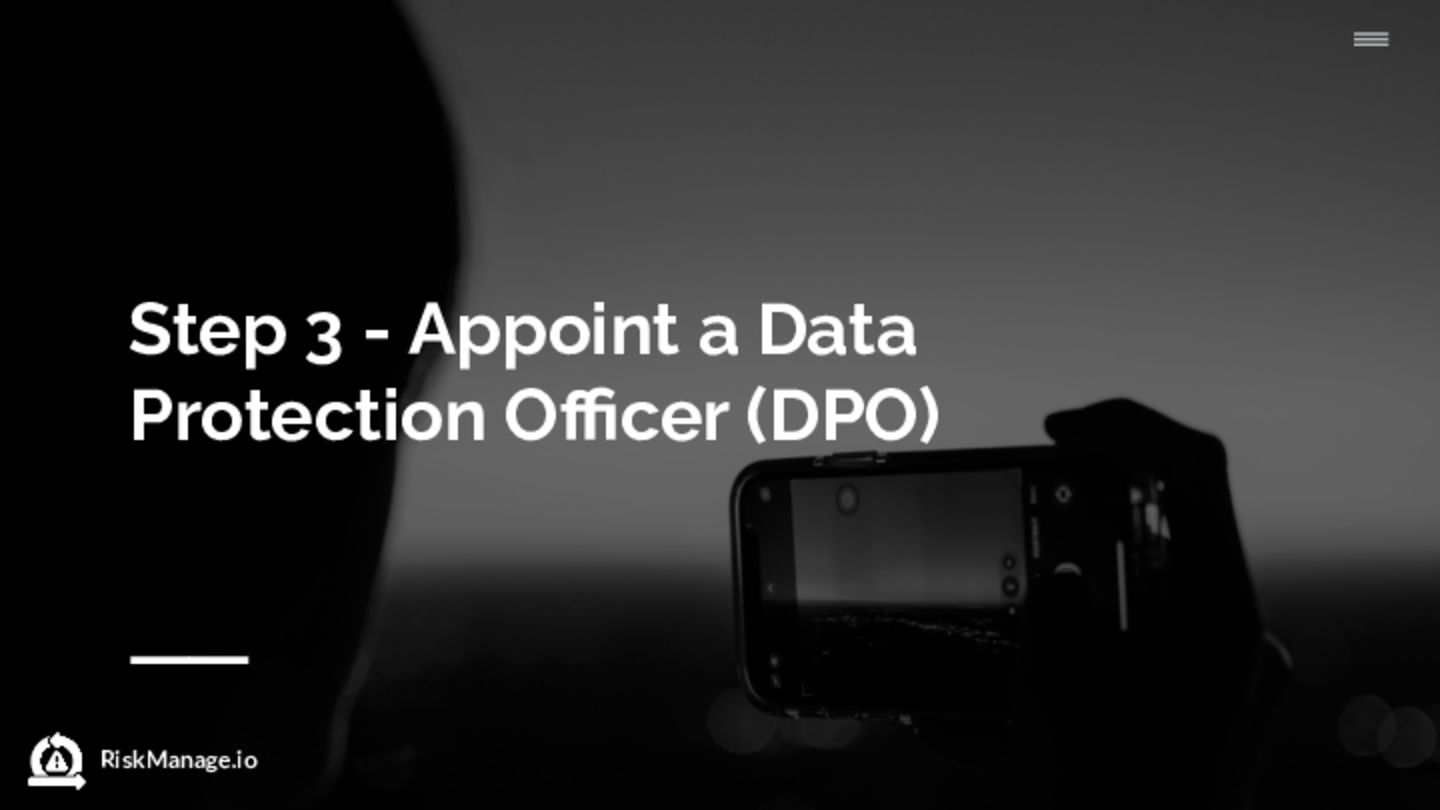
Step 3: Appointing a Data Protection Officer
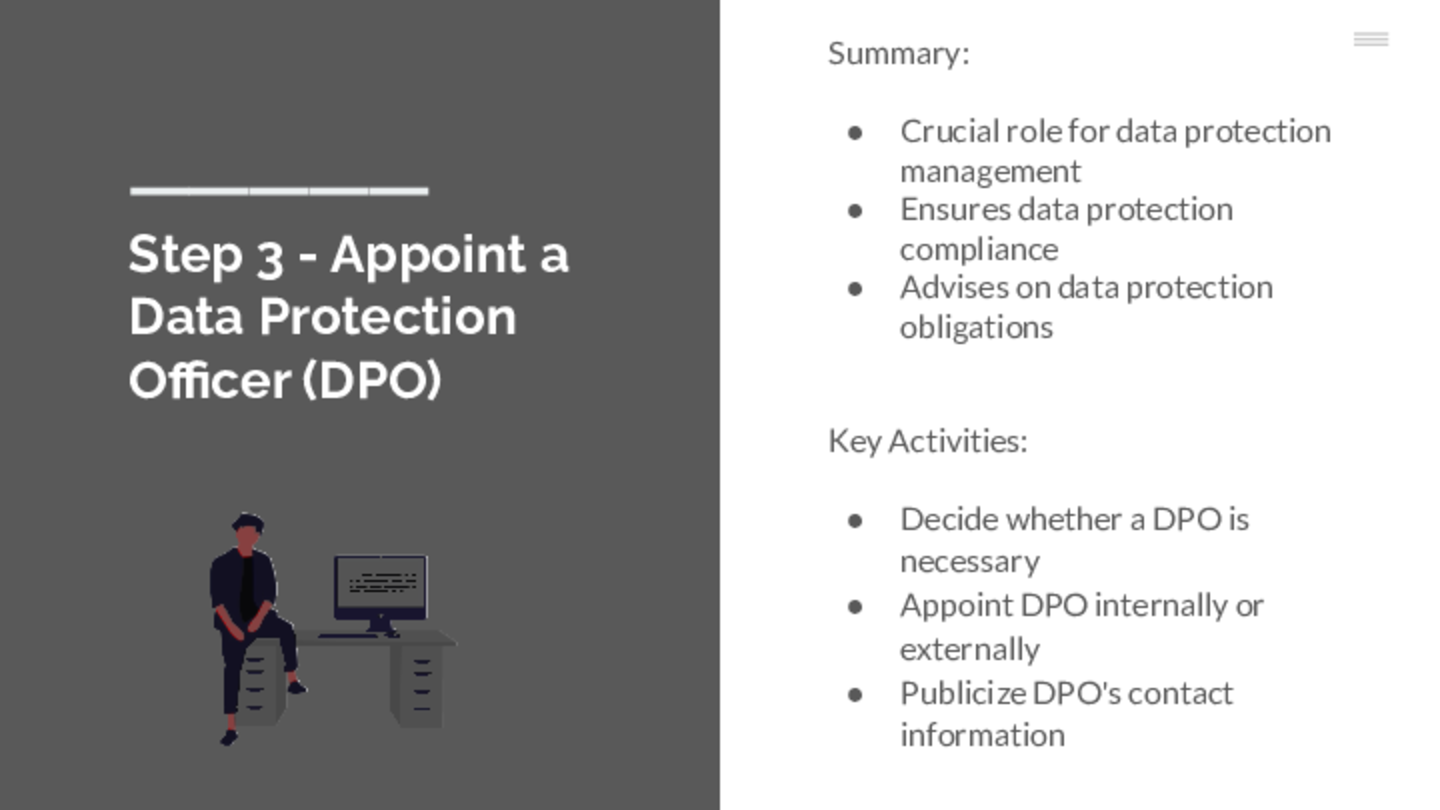
Appointing a Data Protection Officer (DPO) is a crucial step in complying with Data Protection requirements, particularly for high-risk data processing scenarios. The DPO serves as a central figure in overseeing data protection activities, ensuring compliance, and acting as a point of contact for data subjects and the supervisory authority.
Key Activities
Appointing a DPO begins with identifying the right person for the role. This could be an internal staff member or an external professional. The individual should possess a thorough understanding of data protection laws and practices and be familiar with your organisation's data processing activities.
Next, you'll need to clearly define the DPO's responsibilities. This typically includes advising on data protection laws, monitoring compliance, managing internal data protection activities, training staff, conducting audits, and serving as the primary contact for supervisory authorities and data subjects.
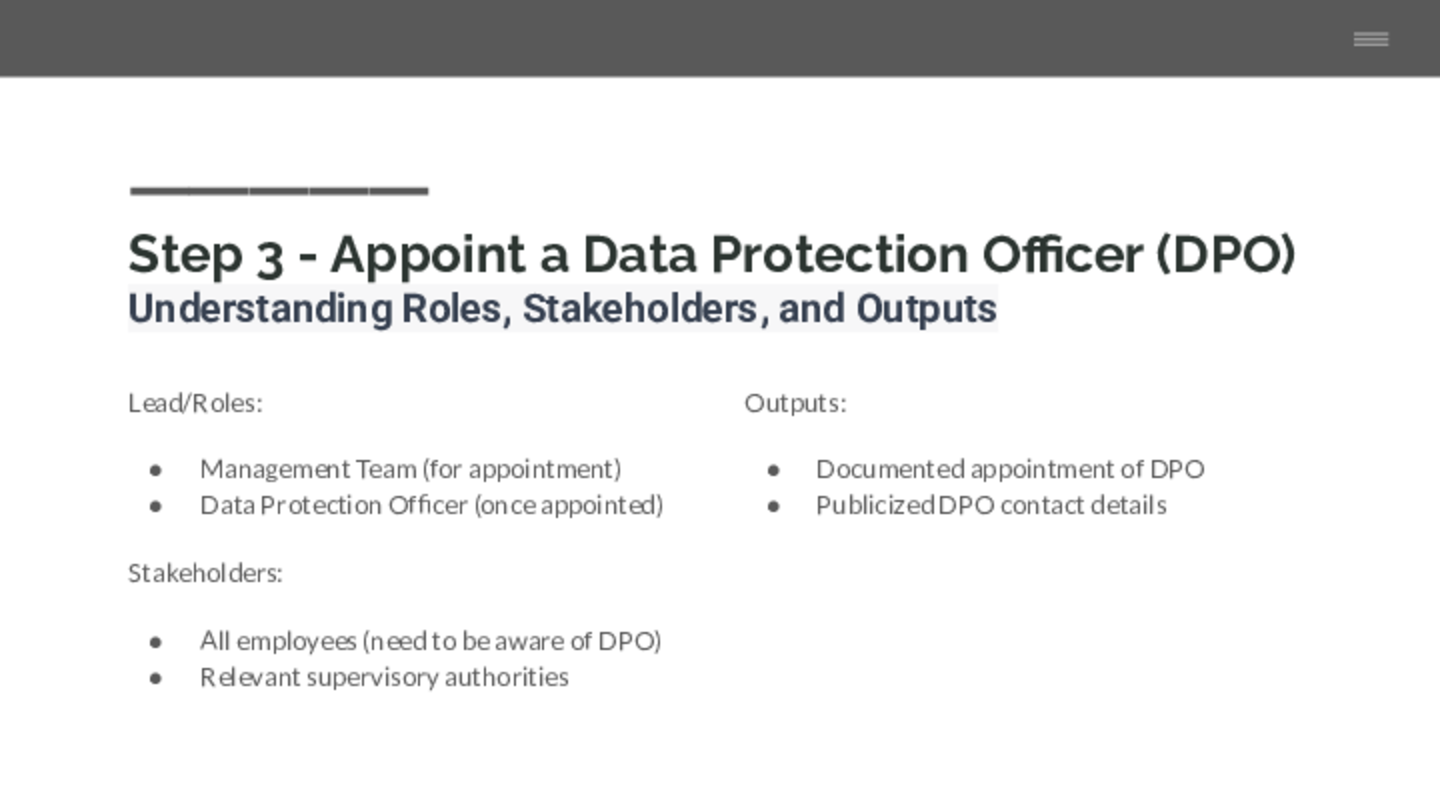 Key Roles and Stakeholder Engagement
Key Roles and Stakeholder Engagement
The role of the DPO is typically assigned by senior management. The DPO will interact with various stakeholders within the organisation, from those directly involved in data processing to those responsible for managing IT security, legal affairs, and human resources. External stakeholders might include supervisory authorities and data subjects.
Outputs
The key output in this step is the formal appointment of a DPO. This should be documented in writing, specifying their tasks and responsibilities. The contact details of the DPO should also be published where applicable and communicated to the supervisory authority.
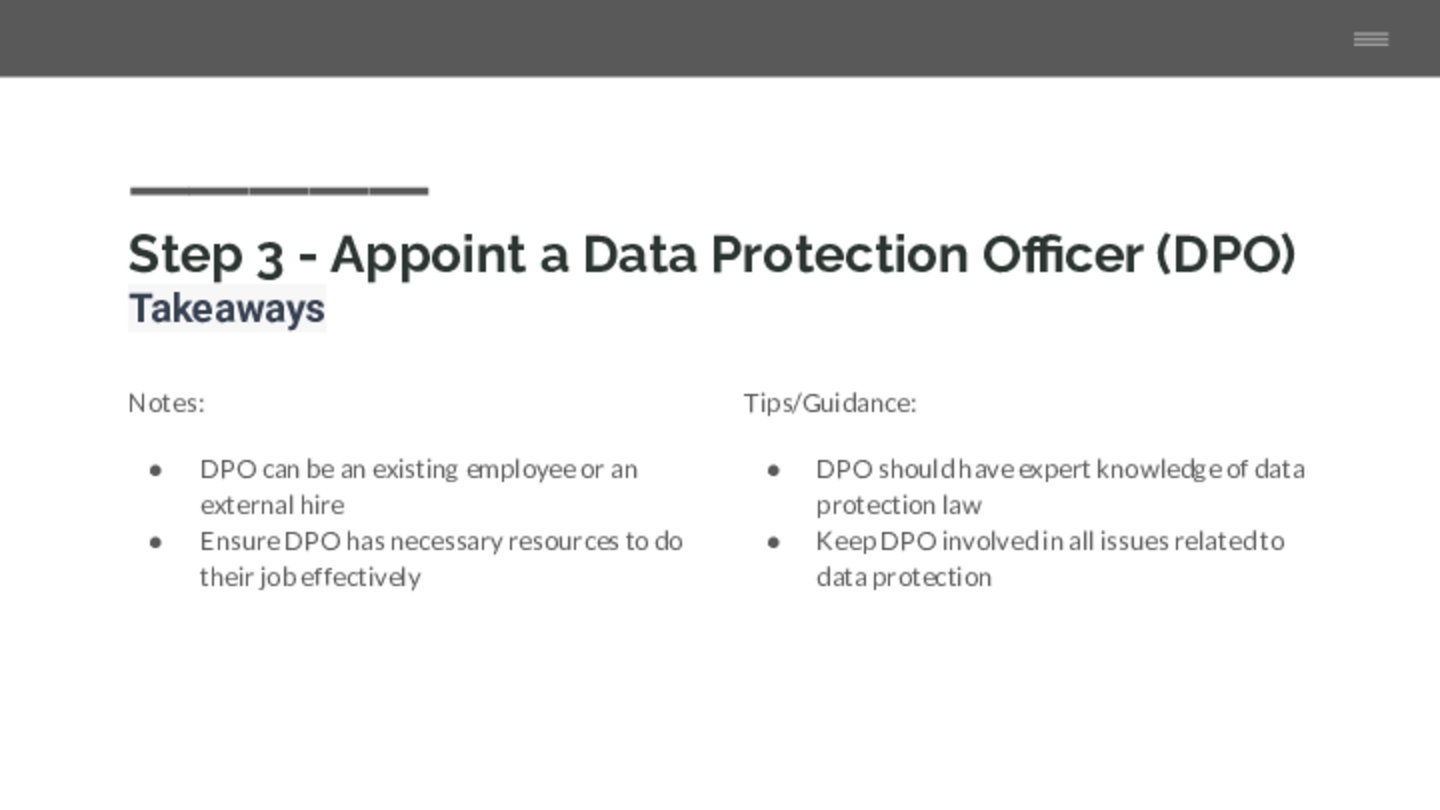 Summary
Summary
When appointing a DPO, ensure that they are involved properly in all issues relating to the protection of personal data from the start. Their involvement from the early stages of projects can help avoid potential data protection issues down the line.
It's crucial to ensure the DPO is given the necessary resources, access to personal data and processing operations, and the ability to maintain their expert knowledge. Furthermore, the DPO should operate independently and not receive any instructions regarding the exercise of their tasks.
Remember that the DPO's tasks are not just about compliance. They are also about advising, informing, and recommending solutions. It?s important to create an environment where the DPO is seen as a support role rather than a compliance officer.
Lastly, remember that while the DPO plays a crucial role in data protection, responsibility for compliance still ultimately lies with the organisation. All members of the organisation should understand their responsibilities when it comes to data protection.
By appointing a skilled and experienced DPO, your organisation is not only taking a key step towards DPA compliance, but it's also underlining its commitment to data protection. This is a significant move in earning the trust of data subjects and maintaining a strong reputation in the marketplace.
In the next stage, [Step 4]((/the-9-steps-to-dpa-heaven-4), we will cover the awareness and training requirements., and what obligations your have to ensure compliance within your organisation.
Navigation
- The next part, "Step 4: Ensure Staff Understand Their Obligations" is available here.
- Step 4 Audio podcast available here
- Links to the complete list of audio podcasts for this series are available here: Part 1, Part 2, Part 3, Part 4, Part 5, Part 6, Part 7, Part 8, Part 9, Parts1-9/Complete
- Links to each Section: Step 1, Step 2, Step 3, Step 4, Step 5, Step 6, Step 7, Step 8. Step 9.
If you like this content, find it useful or are looking for further assistance, you can contact us via info@riskmanage.io, webchat or via our website using the links provide.
